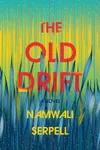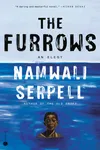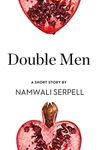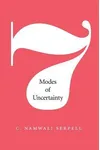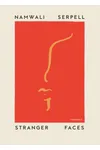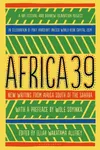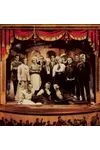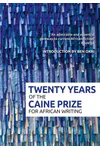Picture a Zambian storyteller who weaves history, magic, and futuristic dreams into unforgettable tales—meet Namwali Serpell! Born in Lusaka in 1980, this award-winning author and Harvard professor has taken the literary world by storm with her genre-blending works like 'The Old Drift.' Her stories pulse with vibrant characters and bold ideas, making her a standout voice in contemporary African literature.
From her Caine Prize-winning short story to her sprawling debut novel, Serpell’s writing captures the beauty and complexity of Zambia’s past and future. Ready to dive into her world? Let’s explore her journey, works, and why she’s a must-read!
The Making of Namwali Serpell
Namwali Serpell was born in Lusaka, Zambia, to a British-Zambian psychologist father and an economist mother. At nine, her family moved to Baltimore, Maryland, where she navigated a new cultural landscape. This blend of Zambian roots and American upbringing shaped her unique perspective. She studied literature at Yale and earned a PhD at Harvard, diving deep into narrative theory and ethics. Her academic path led her to teach at UC Berkeley before joining Harvard, but it was her storytelling that truly set her apart.
Serpell’s writing career kicked off with short stories, earning her early recognition. Her 2010 story 'Muzungu' was shortlisted for the Caine Prize, hinting at her knack for blending raw emotion with sharp cultural insights. Her multicultural background and love for genre experimentation laid the foundation for her bold literary voice.
Namwali Serpell’s Unforgettable Stories
Serpell’s breakthrough came with 'The Sack,' a haunting short story that won the 2015 Caine Prize for African Writing. Inspired by a teenage dream, the story explores grief and political undertones with a surreal twist. Serpell, ever generous, shared the $15,000 prize with fellow nominees, declaring, 'Fiction is not a competitive sport.' This win marked her as a rising star.
Her debut novel, 'The Old Drift' (2019), is a dazzling saga tracing three Zambian families across a century. Blending magical realism, social realism, and Afrofuturism, it tackles colonialism, HIV/AIDS, and technology with a mosquito chorus as narrators. Critics hailed it as a 'rambunctious epic,' earning awards like the Arthur C. Clarke Award and the Anisfield-Wolf Book Award. Her 2022 novel, 'The Furrows: An Elegy,' dives into grief’s madness, using shifting narratives to explore loss. Its experimental style landed it on The New York Times’ 10 Best Books of 2022.
Serpell’s nonfiction, like 'Stranger Faces' (2020), showcases her critical prowess, while her essays in The New Yorker and The Guardian blend wit and insight. Her style—lush, layered, and genre-defying—invites readers to see the world through new lenses, whether it’s Zambia’s space program or a futuristic revolution.
Why Namwali Serpell Matters
Namwali Serpell’s work redefines African literature, challenging Eurocentric narratives and embracing speculative fiction as a lens for truth. Her stories amplify Zambian voices while resonating globally, tackling themes like decolonization and human connection. As a professor, she inspires students to question conventions, fostering a new wave of diverse storytellers. Her awards, from the Windham-Campbell Prize to the Brittle Paper Award, reflect her growing influence.
Beyond her writing, Serpell’s activism—donating prize money to bail out protesters—shows her commitment to justice. She’s not just a writer; she’s a cultural force, proving African novels can be epic, innovative, and deeply human.
About Namwali Serpell
- Born: 1980, Lusaka, Zambia
- Key Works: 'The Old Drift,' 'The Furrows,' 'The Sack,' 'Stranger Faces'
- Awards: 2015 Caine Prize, 2020 Arthur C. Clarke Award, 2020 Windham-Campbell Prize
- Current Role: Professor of English at Harvard University
Snag 'The Old Drift' and dive into Namwali Serpell’s vibrant, genre-bending world! Her stories are a wild ride you won’t forget.
